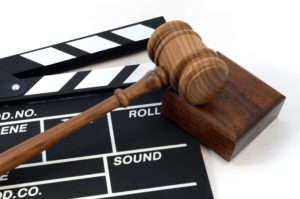Reflections on the 30th Anniversary of My Cousin Vinny and How it Inspired Me to Become A Lawyer

My Cousin Vinny, the 1992 courtroom drama/comedy starring Marisa Tomei and Joe Pesci turned 30 this week. The film is not only a good drama and fantastic comedy, but served as a driving force in pushing my interest in becoming a lawyer and specifically, a litigator. While lawyering was not my initial career path, instead following an acting career, which I have no doubt Marisa Tomei’s amazing Oscar winning comedic performance in My Cousin Vinny subconsciously contributed to as well – I became interested in pursuing a career in law contemporaneously with the film’s release, a professional ambition that only increased with time. To be clear, My Cousin Vinny was not the only source of legal inspiration for me during my formative years – much like Vinny turns out to be in the end, my father is an inspiring criminal defense lawyer, now in his 58th year of practice, who, when I was growing up, introduced me to the profession and demonstrated what tireless client dedication looks like. Books and other films provided inspiration as well, including Inherit the Wind, Reversal of Fortune, and To Kill a Mockingbird to name a few. But the lawyering lessons of My Cousin Vinny were profound and inspire me to this day, as recounted below:
- To a young teenager, the movie showed that even the novice and underdog, through commitment and dedication to the job and clients, can succeed as a lawyer. Like Vinny, fresh out of law school and with no trials under his belt, anyone starting out as a lawyer or not yet in the profession is going to feel like an underdog. And Vinny, who comes from Brooklyn to Alabama to help defend his cousin who has been falsely accused of robbing and murdering a storekeeper, is inexperienced and out of place. He feels like everyone is set out to get him. But once he commits to studying the law and preparing for court, and with his eventual dedication and some intuition, he manages to find the weaknesses in the case and win.
- The film was the first to teach me about the litigation discovery rules, which require the parties to a lawsuit to exchange factually relevant documents before trial. Vinny was so proud of himself for securing his adversary’s case documents before his fiancee, Mona Lisa Vito (Marisa Tomei), tells him that his adversary was required to turn over the documents. As much of litigation centers on the discovery process, this was a good lesson to learn early on.
- The film also demonstrated some great trial cross-examination skill by Vinny, which he conducts of two eyewitnesses, as well as a solid direct examination when he questions his fiancee (Tomei) as an expert witness.
- Most significantly for me, the film showed the importance that all facts may have in a case, and how a litigator needs to evaluate all of them for their weaknesses, and leave no stone unturned in looking for relevant, incontrovertible evidence that can be used to establish the truth. In the movie (spoiler ahead), Vinny successfully refutes a trial witness’ testimony claiming that there would have been insufficient time for two pairs of men to go into a convenience store between the time that the defendants went in and the time that the store clerk was shot and robbed by the assailants, which the witness said occurred over five minutes, spanning the period of time he started and finished cooking his breakfast. Vinny establishes that one fact disproved another fact – specifically, he shows that the witness’ five minute time-frame was erroneous since the witness could not have cooked his eggs and grits breakfast over only five minutes when grits take a full twenty minutes to cook. Today, in preparing a client’s case, I look for the grits as well as the smoking guns.
 This article is intended as a general discussion of these issues only and is not to be considered legal advice or relied upon. For more information, please contact RPJ Partner Ethan Krasnoo who counsels clients in areas of complex commercial litigation, arbitration, mediation and dispute resolution, and employment, intellectual property, and entertainment and media. Mr. Krasnoo is admitted to practice law in New York, the United States District Courts for the Southern and Eastern Districts of New York, the United States Court of Appeals for the Second Circuit and United States Tax Court..
This article is intended as a general discussion of these issues only and is not to be considered legal advice or relied upon. For more information, please contact RPJ Partner Ethan Krasnoo who counsels clients in areas of complex commercial litigation, arbitration, mediation and dispute resolution, and employment, intellectual property, and entertainment and media. Mr. Krasnoo is admitted to practice law in New York, the United States District Courts for the Southern and Eastern Districts of New York, the United States Court of Appeals for the Second Circuit and United States Tax Court..
